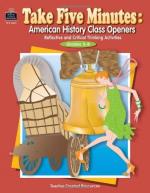|
This section contains 441 words (approx. 2 pages at 300 words per page) |

|
Land of Opportunity. Americans often seemed driven by competition and the desire for profit, characterized by Washington Irving in 1836 as the pursuit of "the almighty dollar." They believed fervently in the "self-made man" (a phrase coined in the 1830s) who rose from poverty through initiative and hard work. Abraham Lincoln, a prominent example of this creed of economic mobility, summed up the prevailing philosophy in one sentence: "The man who labored for another last year, this year labors for himself, and next year he will hire others to labor for him." Yet historians still debate how closely the rhetoric of economic mobility conformed to reality. The evidence supports various conclusions. Between 1820 and 1860, for example, approximately 15 percent of Philadelphia's working population improved either their occupational status (for example, from apprentice to master), income, or wealth, yet an equal number slid lower on the economic...
|
This section contains 441 words (approx. 2 pages at 300 words per page) |

|




